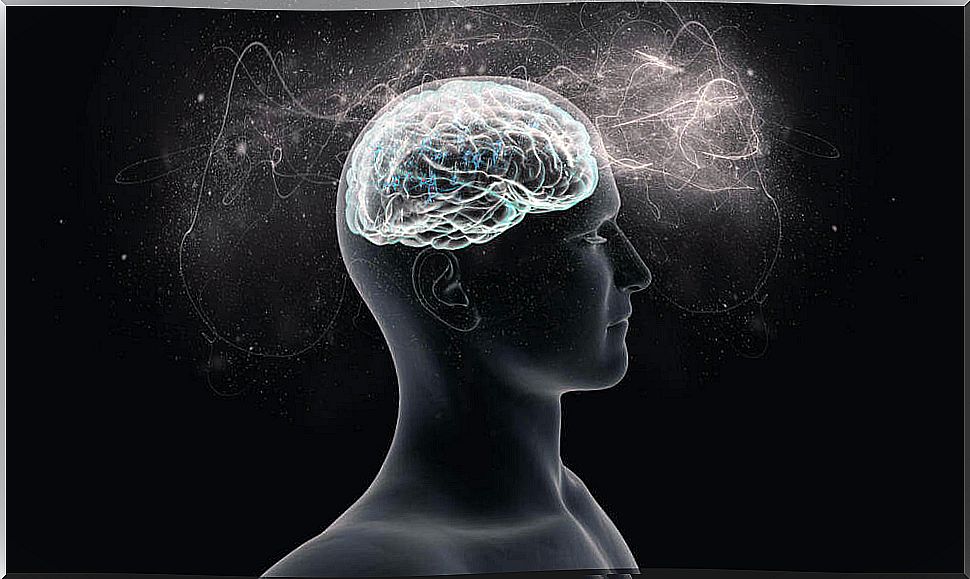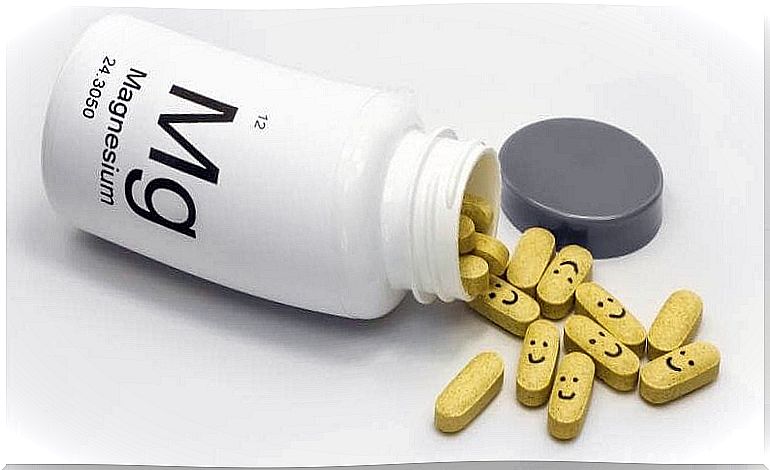Magnesium: The Ally Of Our Brain And Psychological Well-being

Magnesium is that essential nutrient that is often notably scarce in our current lifestyle. This macromineral carries out more than 600 metabolic functions and acts as a great brain protector. In fact, its benefits for improving chronic states of stress and anxiety are so positive that many scientists call it ” nature’s valium “.
Magnesium is not a panacea, this needs to be made clear from the beginning. Taking supplements based on this component will not make our anxiety disorder resolve in a few days, insomnia subside, or triple our cognitive agility. It is a modulator and enhancer of good health and especially neurological health.
That this is so is for a very simple reason. The Western diet has a substantial deficit in this mineral. So much so that it is estimated that about 70% of us have a low level of magnesium in the body. The origin of all this would be in many of the foods we consume: they lack this essential nutrient, and they lack it because it is not replaced in the land where they are grown. Today it is fertilized with phosphorus, nitrogen and potassium …
This does not happen for example in countries like Japan. Their soils are rich in this mineral, to the point that the Japanese ingest an average of about 700 milligrams, something that reverses their longevity, their lower rate of dementia, their better bone health, etc.
It is clear, however, that there may be many more factors, but the research on magnesium therapy is extensive and very fruitful, to the point that many articles published in the journal Nature endorse the benefits of this nutrient for our health psychological.
Let’s dive a little deeper into the subject.

Magnesium functions
Magnesium has become fashionable, we cannot deny it. We see it daily in health food stores, in pharmacies and even in our supermarkets. We have heard so much about its virtues that we could say that there is almost a true “cult” towards this nutrient. However … what is real in all this?
The first thing is to stress once again that its benefits lie in a very specific aspect:. As simple as that. The most curious thing about all this is that as the reserves of this mineral are reduced, the first thing we will notice is a greater sensitivity to stress and anxiety.
However… what is special about magnesium? Why is it so important to our overall health?
- Magnesium is present in a large part of our biochemical reactions.
- It participates in cell transport and “helps” cells to manufacture aerobic energy.
- Much of the magnesium is stored in the periosteum of the bone.
- It favors the formation of proteins.
- Also, this macromineral is essential for nerve impulse and muscle contraction, including those of the heart.

Magnesium and anxiety disorders
Clinical and experimental evidence shows us that a severe and chronic magnesium deficiency leads to numerous neurological problems, such as hyperexcitability, seizures, and psychiatric symptoms ranging from apathy to psychosis. The issue is undoubtedly serious but at the same time encouraging, because it is enough to administer magnesium supplements to many patients and see how the rest of the clinical and therapeutic strategies make possible significant advances.
Likewise, the neuroscientist Guosong Liu, from Peking Tsinghua University, is one of the leading experts in the study of the relationship between magnesium and our cognitive and emotional health. His investigations are without a doubt exciting and very illustrative. Let’s see some of their conclusions below.
Magnesium is a natural relaxant
One thing that has been discovered is that magnesium reduces stress and anxiety by stimulating the GABA receptors in the brain.
- We must remember that GABA (gamma-aminobutyric acid) is a neurotransmitter that acts as a relaxant for brain activity. If this compound has a low activity, the brain is as if suspended in a constant “hyperactivity”.
- When GABA does not act as it should, our worry increases, we have obsessive thoughts, we wake up suddenly in the middle of the night with a racing heart and little by little, we fall into the desperate spiral of anxiety … Very exhausting processes that magnesium can regular.

Magnesium reduces blood cortisol
This data is undoubtedly very interesting: magnesium reduces the release of stress hormones, such as cortisol, and also acts as a neuroprotective, preventing it from reaching the brain.
As we already know, cortisol is one of the most dangerous triggers of anxiety, he who causes us, for example, the classic mental fog, that inability to concentrate, to reason clearly, to be agile in our memory, fast in our reactions …
Magnesium improves our mood
We already know that something as basic as having adequate levels of magnesium in our body will favor processes as basic as muscle relaxation or the balance of the nervous system. Likewise, an aspect that is undoubtedly also very positive is its mediation in producing a more adequate level of serotonin.
Serotonin, as we have already explained on occasion, is that hormone that also functions as a neurotransmitter in charge of regulating our mood. A low level, for example, mediates the onset of depressive states. However, if we maintain a good production of serotonin, we will have a better chance of facing our day to day with greater energy and optimism. And magnesium can help us do that.
How do I know if I should take magnesium-based supplements?
At this point it is very possible that more than one is thinking of going to your pharmacy right now and stocking up a few bottles of magnesium. The strategy does not go through this quick decision, let’s not rush. One thing to keep in mind is that magnesium is not suitable for all types of patients; it may not be, for example, if we have a kidney problem.
For this reason, the most successful thing will always be to consult with our doctor, analyze our conditions and needs and assess whether we should take magnesium-based supplements, what type and what amounts.

Likewise, it never hurts to improve our diet. Ideally, it would always be to resort to organically grown products, where we can be sure that the soil has been fertilized with magnesium, free of pesticides and other products that subtract nutrients from the final fruit or vegetable. These would be some examples of those foods rich in magnesium that we should consume more frequently:
- Avocados
- Salmon.
- Pumpkin, sesame and sunflower seeds.
- Dark chocolate without sugar.
- Parsley.
- Mustard seeds.
- Almonds, chestnuts and walnuts.
- Wheat bran.
- Spinach.
- Lentils and chickpeas.
- Cockles
- Raisins and dried plums.
- Green peas.
To conclude, although the complexity of the current world with its pressures and difficulties undoubtedly favors our being more sensitive to states of anxiety or stress, our diet more deficient in nutrients also shapes many of the health problems or disorders that we can develop at any given time. So let’s take care of ourselves a little better.









